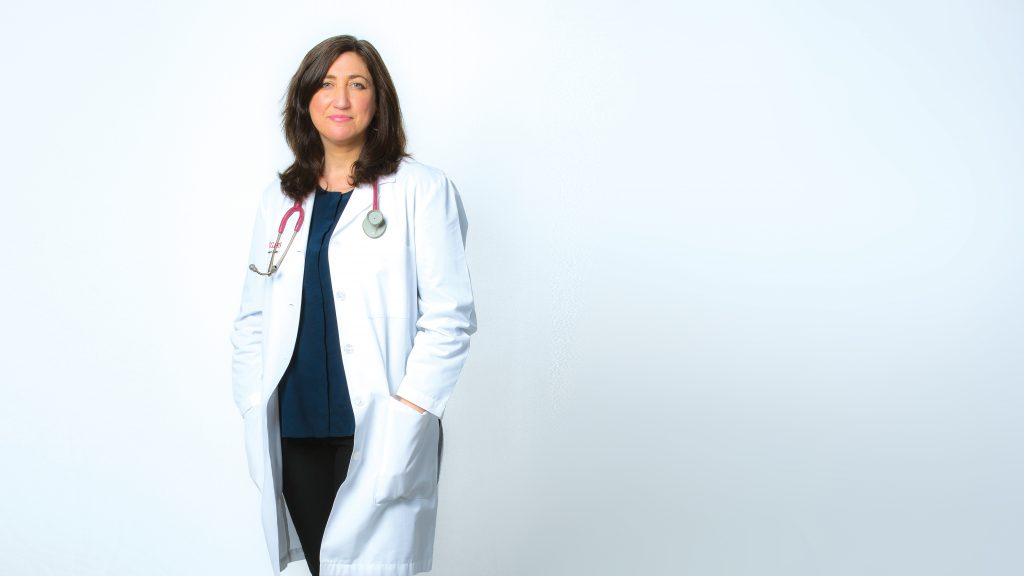
New Associate Dean is a Champion of Health Care Access
School of Nursing’s new associate dean of advanced practice and clinical partnerships, Caroline Dorsen (PhD, FNP-BC), grew up discussing social justice at her family’s Greenwich Village dinner table. “Even as a very small child, we spoke frankly about injustice in the world,” she says. “No topic was off limits.”
At UC Berkeley, where she studied anthropology as an undergraduate, she became increasingly interested in the question of how to reduce social disparities. With many of her friends volunteering at the “infamous” Berkeley Free Clinic, Dorsen “quickly saw the power of health care to change lives,” and was hooked.
As a health educator at the clinic, and later at Planned Parenthood, she worked alongside nurse practitioners and was impressed. “They were smart, collaboratively minded advocates and caregivers. This was the height of the AIDS epidemic in San Francisco, and young people my age were getting sick and dying. My interest in nursing was awakened and my lifelong dedication to LGBTQ health was born.”
Anthropology and nursing were closely linked for Dorsen—anthropology providing the framework to study family, gender, health care, housing, food insecurity, and community, and nursing providing avenues to actualize change. So, she set about earning her professional credentials: a BS in Nursing from New York University; an MSN from Yale; a PhD and post-doctoral work at NYU.
Dorsen has now worked as a nurse and family nurse practitioner for more than 20 years. Her focus throughout has been trying to improve access to care and meet the health needs of diverse groups of patients. Her passion for primary care came from her desire to “form ongoing relationships with patients, especially historically hidden and marginalized populations such as the LGBTQ community.” Teaching has also been a focus of her career over the last 18 years. Before coming to Rutgers, she served on the faculty of NYU’s Rory Meyers College of Nursing where she launched a family nurse practitioner program. Teaching and advising advanced practice students, she urged them “to always think of human beings in the context of their lives. Being a good clinician means always hearing what patients have to say and learning who they are.”
In 2020, happy with her career, she nevertheless was “ready for a new challenge and excited by Rutgers School of Nursing’s vision for advanced practice education,” she says. “I like the school’s biggerpicture perspective, and its diverse student population.” She was interviewed, hired, and began her job entirely virtually during the COVID pandemic’s most critical months.
Dorsen, who is also a clinical associate professor at the School of Nursing and an associate professor in the School of Public Health, aims to strengthen already-forged clinical, academic, and community partnerships locally, regionally and nationally. She’ll work closely with other health care professionals as part of Rutgers Biomedical and Health Sciences (RBHS). “I see great opportunities for us to break down some silos in health education and practice at Rutgers, which research suggests will both increase provider satisfaction and improve patient outcomes.”
Advocacy for the nursing profession is also among her passions. “Early on, I saw something special about how nurses relate to patients,” she says. “COVID has shined a light on the value of nurses, but also how hard our jobs are. As a mental health advocate, I know that nurses can’t do the hard work they’re doing without the support they deserve. I want them to get that support and recognition.”
